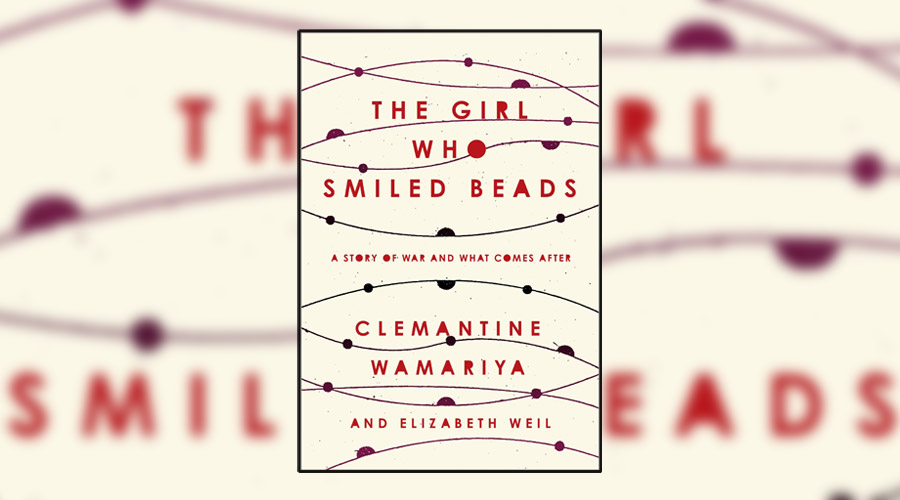Book Review: The Girl Who Smiled Beads by Clemantine Wamariya and Elizabeth Weil

It’s surely impossible for anyone to finish the memoir of Clemantine Wamariya and not simply sit back in awe at her story, her survival and strength. This is brought home even more so when watching some of her speeches and TED talks on Youtube, which I strongly recommend that you do. It’s difficult to imagine that this young woman with so much poise, authority and compassion, can somehow also be the same little girl in her story with worms in her feet in a refugee camp in Burundi. It’s a narrative that Wamariya is honest about struggling with in the book – how to carry her past with her and how much she wants it to define her. Her introspection, honesty and humanity in sharing her story and exploring these questions are thoughtful and moving to read.
With the help of journalist Elizabeth Weil, Wamariya weaves together memories from her childhood as a refugee travelling through Africa after escaping the Rwandan genocide, and her life in the USA once being granted asylum, and later citizenship when she is 12. What particularly stands out in these passages of constant upheaval is the sheer willpower of Wamariya’s sister, Claire, who singlehandedly keeps them alive when moving from different refugee camps and family houses from Burundi to South Africa at great cost to her own freedom and wellbeing. I couldn’t help but feel specifically for Claire at times, particularly when they are in the States and Clemantine gains independence and stature through her academic ability. Claire by this point is a mother thrice over, and while her marriage had initially saved them from life in a refugee camp, it continues to then restrict and damage her. With such evident business acumen and strong self-sufficiency in the most desperate of circumstances, it is heartbreaking to read. It’s to Wamariya’s credit that her sister’s story is so rightly highlighted in the book.
Wamariya’s teenage and university years are particularly engaging to read. It’s very easy to see why survivors of experiences like hers often feel profoundly angry at the world and Wamariya is again honest in her depiction of how she dealt with this anger in her college and university years. During this time is when the famous Oprah interview takes place; Wamariya is offered a place on an episode with Elie Wiesel to discuss his writing, and in classic Oprah fashion, is reunited with her parents after last seeing them in Rwanda when she was six. Wamariya opens the book with a description of this moment, but it is most surreal, and moving to watch after, once reading her experience.
At a time when the situations of refugees the world over, whether on the southern border of the US or on the Mediterranean coasts of Europe, seem to be dismissed or actively demonised, books like Wamariya’s are not only welcome but necessary in their ability to remind us of our ‘equal humanity’ – to use Wamariya’s own words. Hers is an honest and impassioned voice that I look forward to hearing from again in the future.
★★★★★
The Girl Who Smiled Beads was published by Hutchinson on 26 April 2018


